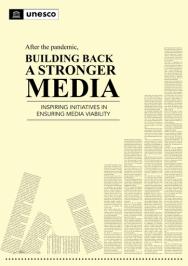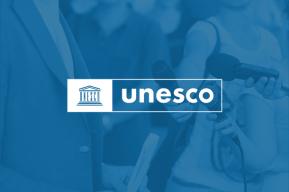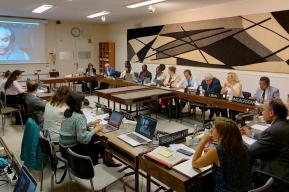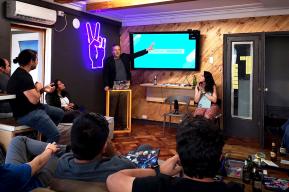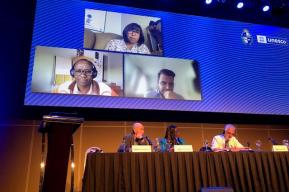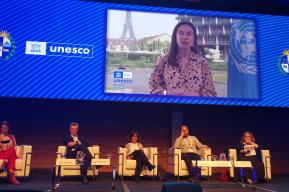Article
IPDC’s Media Viability case studies featured at UNESCO’s World Press Freedom Day global commemoration
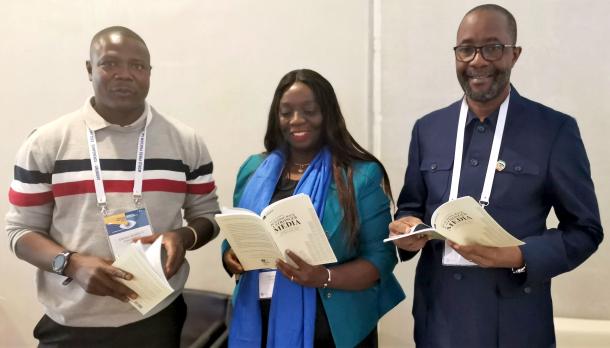
The cases are published under the title of “After the pandemic, building back a stronger media”, compiled by media expert Larry Kilman for UNESCO’s International Programme for the Development of Communication (IPDC).
With many news media organizations struggling as businesses, their very survival rises to the level of a major threat to media freedom.
The case studies cover:
- Latin America: strengthening entrepreneurial journalism
- Indonesia: where the advertising model for media still works
- Chile: A payment platform helps independent and local media gain revenue
- Lebanon: Making a successful transition from print to digital
- Europe and Africa: Advocacy in all shapes and sizes
- South Africa: Community media take on a new role
- Global: Protecting the independence of public service media
- Brazil: Fact-checking emerges as a business strategy
- Pakistan: How the Jang Media Group emerged from the pandemic
- The Caribbean: Cross border collaboration
- Global: A fund for new approaches to media development
The publication complements UNESCO’s recent Policy Brief, “Finding the funds for journalism to thrive”, launched at World Press Freedom Day on 3 May, also with IPDC support. (see story here).
The two publications respond to the twin challenges of digital disruption and the global pandemic, and their insights enriched the session titled “Media Viability: What Can Be Done?”of the World Press Freedom Day commemorations.
The outputs are part of a larger UNESCO collaborative initiative to strengthen media viability that also includes research, consultations, knowledge sharing and best practice resources to help independent news media ensure their future sustainabilty.
The 3 May panel in Uruguay examined the wide array of policy recommendations put forward in the policy brief, which provides 22 highly practical recommendations, especially in terms of urgent change in policy and practice by governments, internet companies and news media.
Not all of the policy recommendations would work in every market and should be tailored to local conditions, the panelists noted. However, changes at global level are also needed to have more and better journalism on a large scale, said panelist Marcelo Rech, President of the Brazilian Newspaper Association (ANJ).
Other speakers included: Ambassador Anna Brandt, Chair of UNESCO’s International Programme for the Development of Communication (IPDC); Danielle Coffey, Executive Manager, News Media Alliance, USA; Dr Agustin Espada, Quilmes National University, Argentina; Paul Deegan, President and CEO, News Media Canada; Lic. Luis Ajenjo, President, Radio Cooperativa de Chile and Working Group on ICTs of the IAB; and Mijal Iastrebner, Journalist and co-Founder of Sembramedia.
